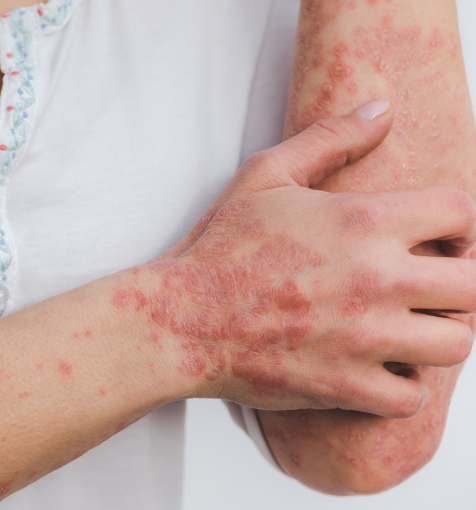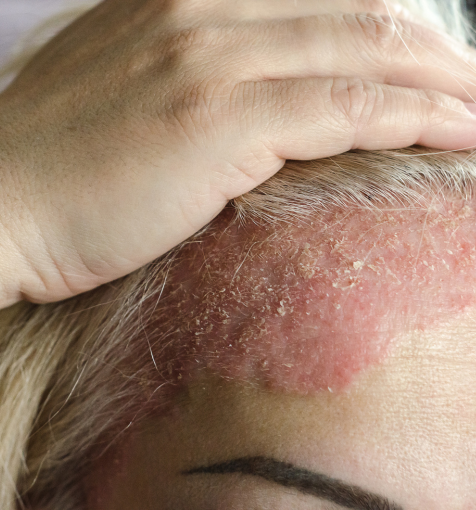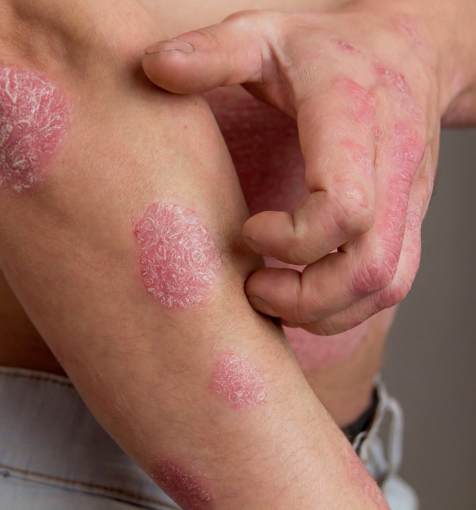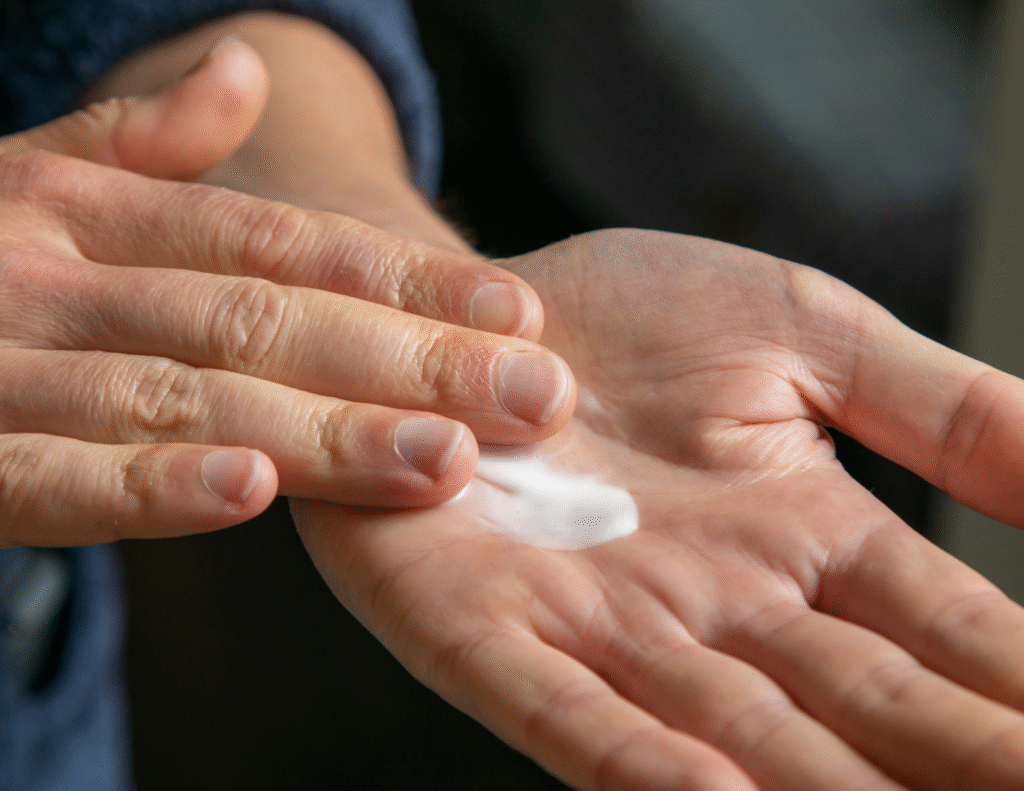Personalized Care for Psoriasis Flare-Ups in New Jersey
Psoriasis is a chronic skin condition that affects more than 100 million people worldwide. It develops when the immune system sends faulty signals that cause skin cells to grow much faster than normal—days instead of weeks. As these cells build up on the surface of the skin, thickened patches, plaques, and scaling occur, often leading to itching, pain, and discomfort. At Skin & Laser Center of NJ, our board-certified dermatologists understand the physical and emotional toll psoriasis can take, and we provide compassionate, personalized care to help patients manage symptoms and improve their quality of life.


Psoriasis most often develops between the ages of 15 and 30, but it can appear at any stage of life. The condition is not contagious, but it does tend to run in families and is influenced by immune system dysfunction. Symptoms and severity can vary widely depending on the type of psoriasis. Common presentations include:
Plaque psoriasis: Red or pink raised patches covered with silvery scales, the most common form
Guttate psoriasis: Small, drop-shaped bumps often triggered by infections like strep throat
Inverse psoriasis: Smooth red patches appearing in skin folds, such as under the breasts or in the groin
Pustular psoriasis: White pustules surrounded by inflamed skin
Erythrodermic psoriasis: Widespread redness, scaling, and severe itching or pain, requiring immediate medical care
Beyond its visible symptoms, psoriasis has also been linked to other health concerns, including obesity, diabetes, and heart disease, making proper management essential.
Psoriasis symptoms often worsen due to specific triggers. Identifying and avoiding these triggers can help patients reduce flare-ups and maintain clearer skin. Common triggers include:
Stress and emotional strain
Cold or dry weather
Strep infections or other illnesses
Certain medications, such as beta blockers or lithium
Skin trauma, including cuts, scrapes, or sunburns
Our dermatology team educates patients on how to manage lifestyle factors that may influence flare-ups, offering practical strategies to limit exposure and keep symptoms under control. While there is no known cure for psoriasis, ongoing care and professional guidance can make a significant difference in day-to-day comfort.


Treatment at Skin & Laser Center of NJ is tailored to the individual, taking into account the type and severity of psoriasis, as well as each patient’s overall health. Options may include:
Topical therapies: Prescription creams, ointments, and shampoos to reduce inflammation and slow skin cell growth
Phototherapy (light therapy): Controlled exposure to ultraviolet light to help reduce flare-ups
Systemic medications: Oral or injectable treatments that target the immune system, often used for moderate to severe cases
Biologic therapies: Advanced treatments designed to specifically block immune system signals that trigger psoriasis
We believe in a comprehensive approach—treating not just the skin but the overall health of each patient, offering both medical solutions and ongoing support.
Learn More About Psoriasis
Each type of psoriasis presents and is treated differently, so one of the first steps during your consultation at Skin & Laser Center of NJ will be identifying your specific form of the condition. Some patients may suffer from multiple types.
There are several treatment options for psoriasis patients at Skin & Laser Center of NJ. Know that there is no cure for the condition, but we can help you to manage the symptoms and mitigate future flareups. Your dermatologist will choose the best treatment option for you based on the type and severity of your condition. Psoriasis treatment falls into multiple categories:
We also offer care for other chronic conditions, such as rosacea and eczema, as well as medical dermatology problems like acne, skin cancer, and more.
Convenient walk in hours available below. No appointment needed! Accepting private insurance and medicare. No medicaid plans.
Learn more about medical treatments at New Jersey’s Skin & Laser Center of NJ. Call 201-500-7525 or contact us online to schedule a consultation.